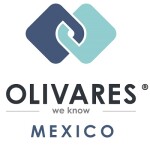Since Mexico joined the Hague Agreement Concerning the International Registration of Designs in 2020, applicants have been able to designate Mexico to seek protection of their industrial designs.
This article summarises two important issues that must be considered when designating Mexico.
Recognition of the priority
When an international application claims a priority, Mexican law provides that the certified copy of the priority must be submitted before the Mexican Patent Office (IMPI) within three months after the publication of the registration in the International Designs Bulletin.
The priority must be translated, unless it is in Spanish, and the corresponding payment for the priority claim must also be submitted within three months.
Even though IMPI participates in the WIPO Digital Access Service and has access to the platform to obtain certified copies of priorities, applicants still need to submit the translation and payment within said term. Otherwise, IMPI will not recognise the priority in Mexico.
Unity of design requirement
Under Mexican law, designs that can be identified with the same denomination, share the same new characteristics, and produce the same general impression are considered as having unity of design.
The Hague system indicates it is possible to include up to 100 designs belonging to the same Locarno classification in a single application.
However, when an international application does not comply with the unity of design requirement, IMPI will issue a notification of refusal requiring the division of the application to elect a single design or designs having unity, whereas non-elected designs can be protected by means of divisional applications which must be submitted directly before IMPI.
Summary
The above considerations should be kept in mind when using the Hague system to ensure that designs are properly protected in Mexico.












